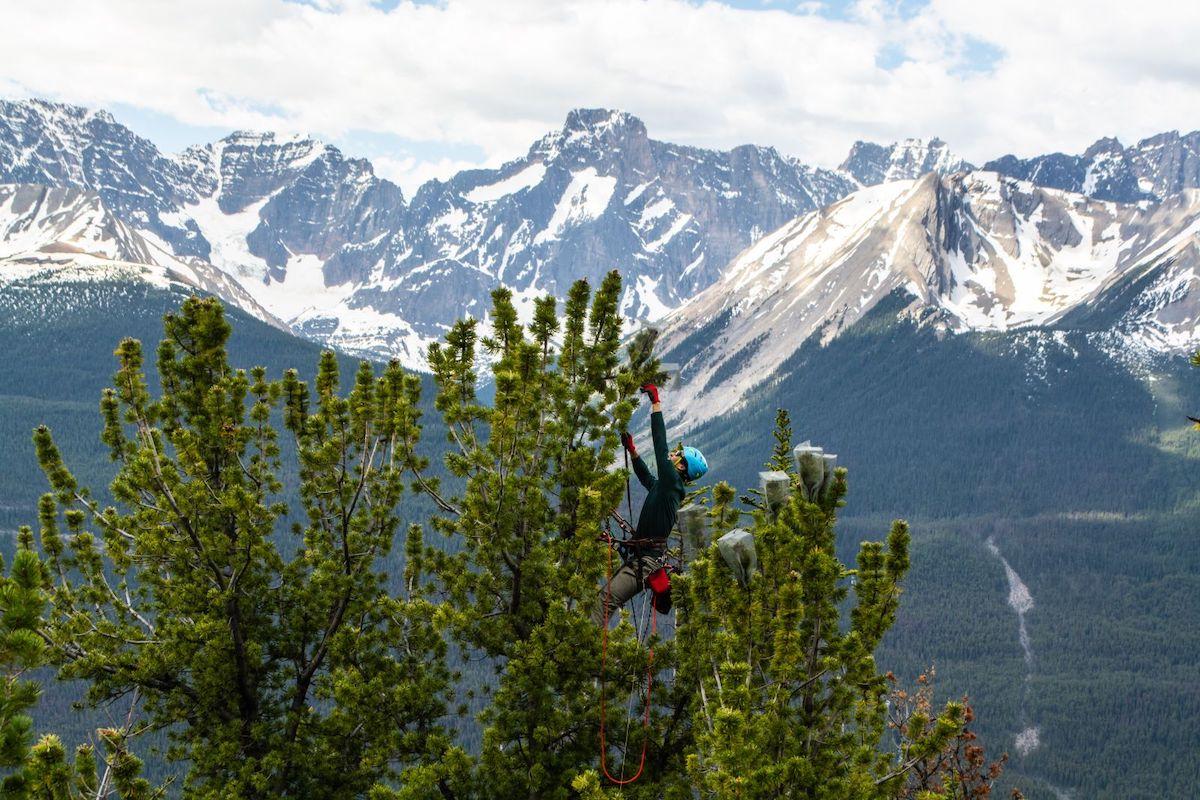
Canada's seven mountain parks have joined forces to conserve whitebark (shown here) and limber pine/Parks Canada, Iain Reid
Parks Canada has released a short film that tells the story of whitebark and limber pine conservation in the mountain national parks, and what conservation specialists are doing to safeguard and recover the future of these trees.
Planting the Future, available on YouTube and just under six-minutes long, explores how whitebark and limber pines are keystone species in mountain ecosystems and play a crucial role in their environment.
“Not only are these high-elevation five-needled pines iconic, they also provide food and shelter for wildlife, stabilize steep mountain slopes and hold onto the snowpack,” the park said in a news release. “Water then becomes available to other plants and helps create a gradual release of meltwater that stems the likelihood of flooding in the spring.”
Despite being an integral part of the mountain ecosystems, these trees are in trouble. Whitebark and limber pine are in decline across most mountain landscapes in North America and are at risk of extinction. They face many challenges, including white pine blister rust (a non-native fungus), historical forest-fire suppression, mountain pine beetle and climate change.
To help mitigate these threats, seven mountain national parks have joined forces to share knowledge and take action to save them from extinction. Identifying trees that show natural resistance to whitebark pine blister rust, collecting cones and planting seedlings are among several methods Parks Canada uses to help restore whitebark pine and limber pine.
Parks Canada provided these statistics and said Increased awareness of, and interest in, these species at risk will improve their chances of survival:
• 513 trees have been identified that show natural resistance to white pine blister rust.
• 250 trees were sent for white pint blister rust-resistance screening.
• 485,210 whitebark pine seeds have been collected.
• 97,326 whitebark pine seedlings have been planted in the mountain parks.
The seven national parks are in Alberta and British Columbia and include Jasper National Park, Banff National Park, Yoho National Park, Kootenay National Park, Waterton Lakes National Park, Mount Revelstoke National Park and Glacier National Park.

 Support Essential Coverage of Essential Places
Support Essential Coverage of Essential Places



